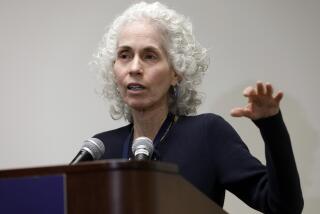Three kids, a health plan and $15,000 in medical debt: A working family tries to make ends meet
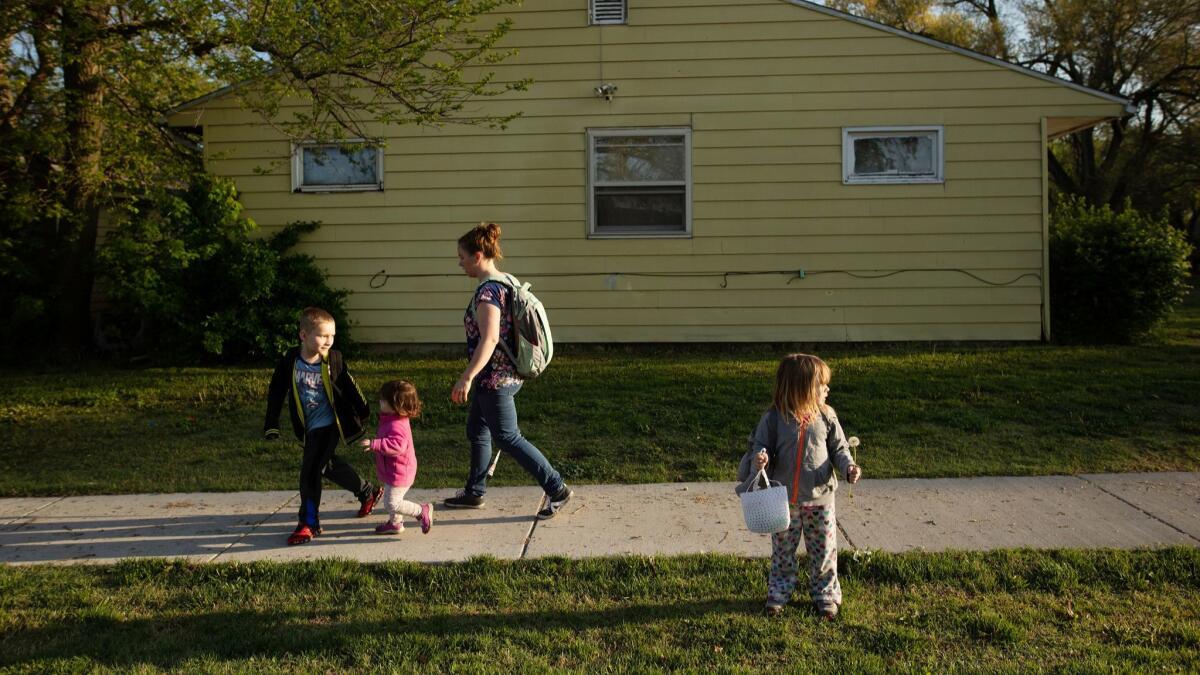
- Share via
Reporting from Topeka, Kan. — Clarisa Corber hopes someday to get medication for depression and acne. Her husband, Zack, an apprentice pipefitter and former high school football player, needs a doctor to look at his knees, which swell when he climbs too many stairs.
The Corbers wish they could put something in a college fund for their three children.
Both parents, who are 33, dream of moving the family out of the cramped, 1,000-square-foot house they rent in a crime-plagued Topeka neighborhood known as the Dirty South.
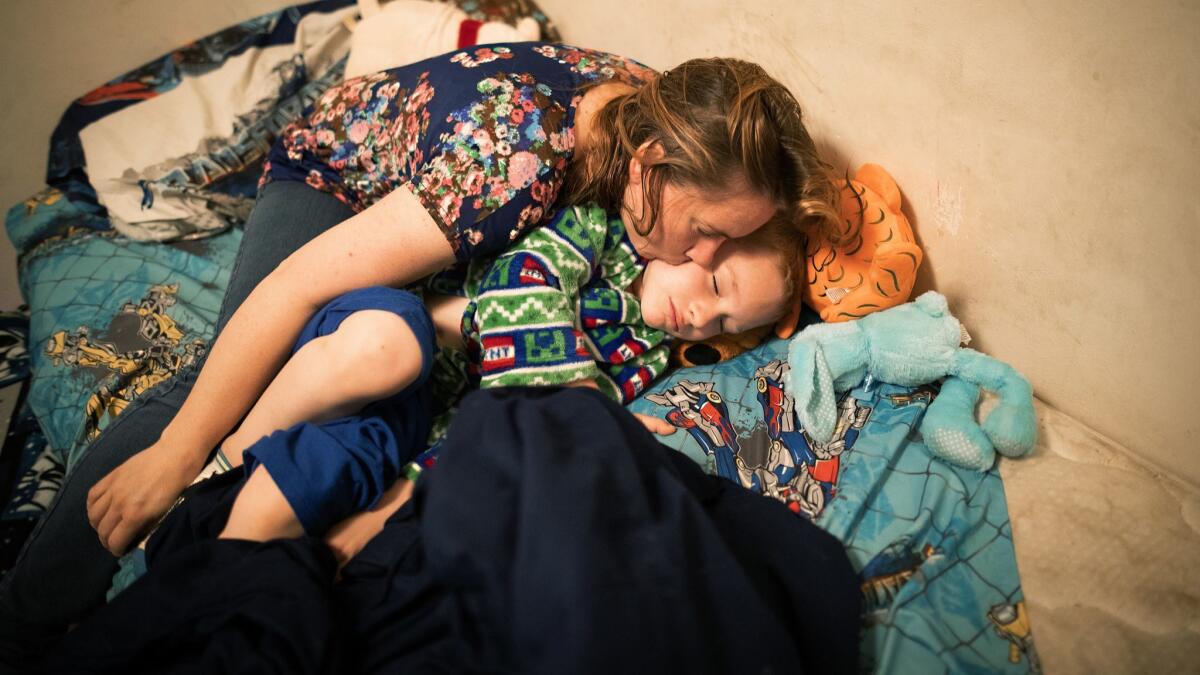
For now, though, their dreams are on hold. Like millions of Americans with job-based health coverage, they are staggering under the weight of medical debt.
“It beats you down,” Clarisa said recently as she sat at the family dining table, tallying some $15,000 in outstanding medical bills the family has racked up in recent years even though they had insurance through Zack’s work.
“We want to pay off everything. We’re not slackers,” Zack added. “We just can’t.”
Millions of Americans face an affordability crisis as insurance deductibles soar »
The Corbers, who’ve had health plans with deductibles as high as $8,000, are among dozens of working Americans interviewed by The Times for a project examining the dramatic rise in health insurance deductibles over the last two decades.
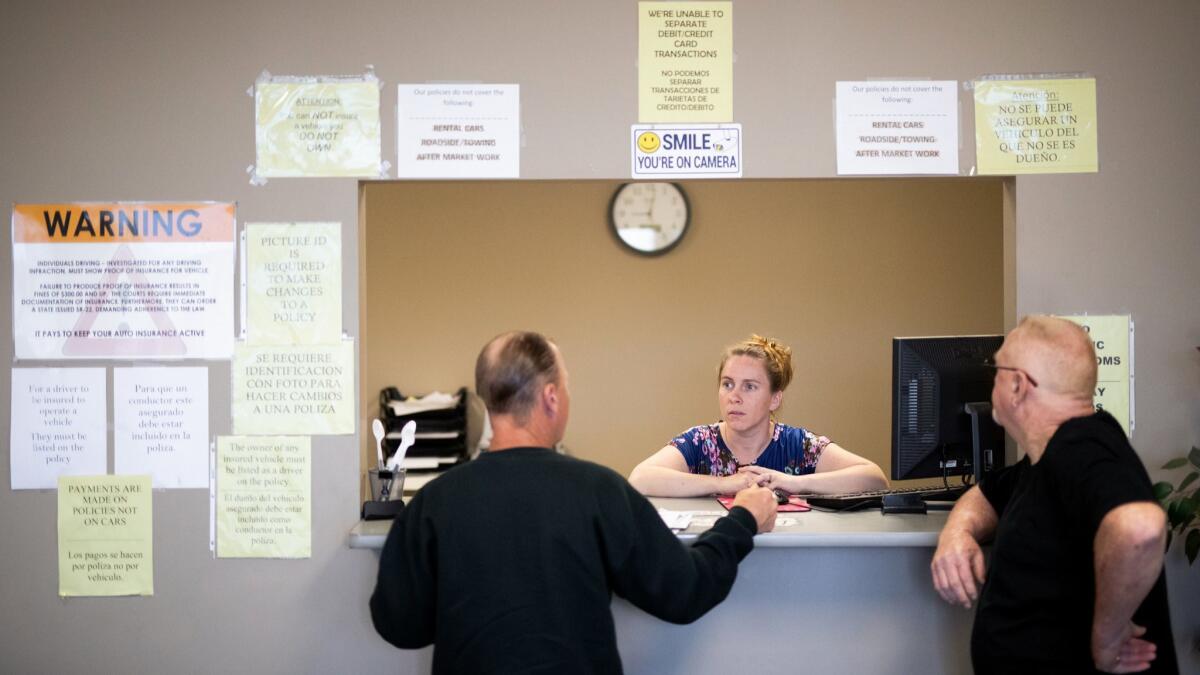
Three years ago, the Corbers were hit with more $9,000 in medical bills when their second child was born prematurely. The baby had to spend nearly two weeks in the neonatal intensive care unit.
Last year brought another $2,000 after their youngest daughter had to go to the emergency room because she was struggling to breathe. The medical staff cleared mucus from her nose and gave her ibuprofen, concluding the congestion was caused by a common infection.
Last month, when the Corbers took their daughter back to the emergency room as she gasped for air, they were told she had asthma and given a nebulizer.
They haven’t yet received the bills for that visit.
The Corbers know they have it better than many.
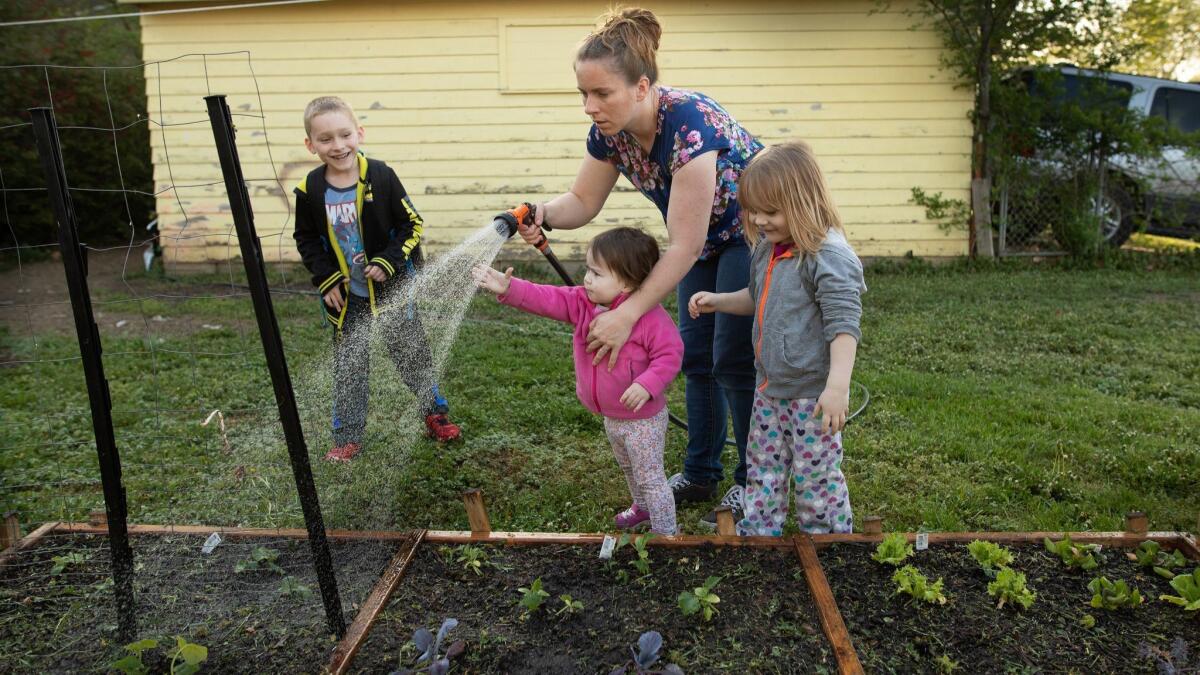
Their children — Lee, 6, Abigail, 3, and Kaley, 1 — are generally healthy. Zack is a member of the local pipefitters’ union and makes $23 an hour while he completes his training. The hourly wage rises to $36 when he is fully certified, although until then he must take off every sixth week at no pay to go to school.
Clarisa recently got a new job at an insurance agency, a step up from the auto detailing work she did last year at $8 an hour. She drives Uber on Friday and Saturday nights to make extra cash, leaving when the kids go to bed around 8:30 p.m. Some nights she drives until 4:30 a.m.
Their family income is now getting close to $75,000, a major jump from last year, though still under the national median for a family of five. The family also has better health coverage now through Zack’s union. That plan has no deductible, but does require them to cover some costs out of pocket.
After paying for essentials, the family has rarely had much extra for medical bills or debt payments.
Are you facing high medical costs because of a high-deductible health plan? Tell us your story »
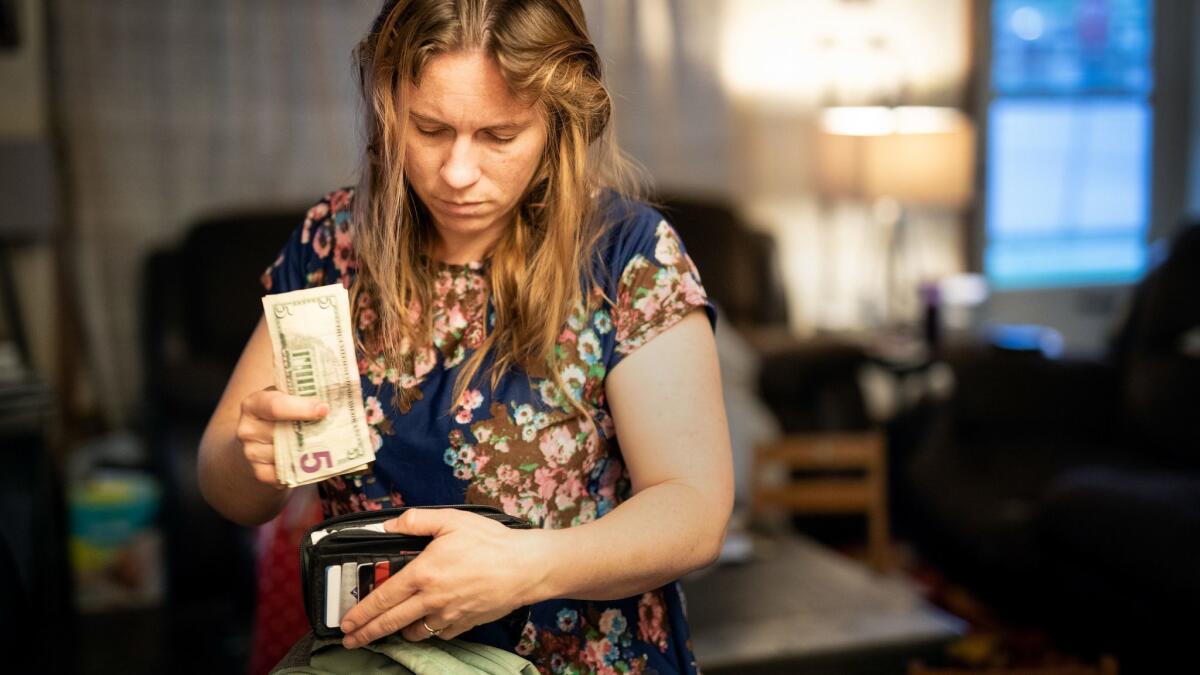
They pay $600 a month in rent. Utilities are another $400. The cable TV and internet run to $170. Car insurance is $120. Cellphones are about $200.
They drive used cars. His is 15 years old, hers nearly 10.
They’re able to save on childcare with help from Clarisa’s mother. They pay her $300 a week, which helps Clarisa’s parents make ends meet.
Clarisa budgets $125 a week for groceries.
And she pays $50 a month to a collection agency to chip away at medical debt and her student loans.
A few months ago, she treated herself to new glasses: She was having trouble seeing addresses at night when she was driving for Uber. She hadn’t been to visit the eye doctor in two years.
“It’s tough,” she said. “Every time I see the phone ring, I think it’s the collection agency.”
Last year, the family finances were sometimes so stretched that they relied on help from Clarisa’s church to get food.
Clarisa sold off a laptop, a printer and any toys the kids had lost interest in. They downgraded their internet service.
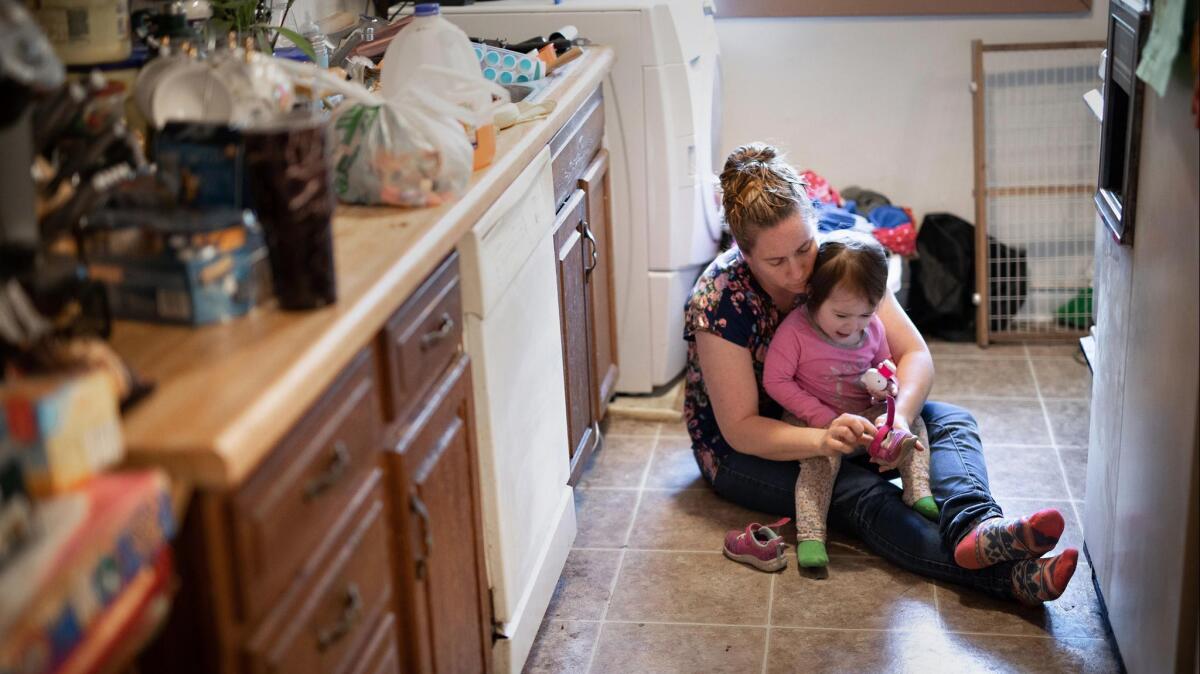
The only luxuries the Corbers allowed themselves were a gaming system and Zack’s fishing gear, which is stored in one of the kid’s bedrooms. Zack reasons it helps feed the family. There is still catfish he caught last season in the freezer.
“I guess we could have gotten rid of the PlayStation,” he said. “But on some days, it was one of the only things that made it possible to keep going.”
Clarisa has a strategy for the medical bills, born of necessity. “I open it, I look at it, and I let it go to collections,” she said.
But she wonders sometimes why the system seems so broken.
When she was in her 20s, Clarisa spent more than a year in England doing missionary work.
“Everything was taken care of,” she said, recalling she was able to fill prescriptions for her acne and depression for less than 15 pounds a month, or about $20.
Back in Kansas, she stopped taking the medications: They would cost $300.
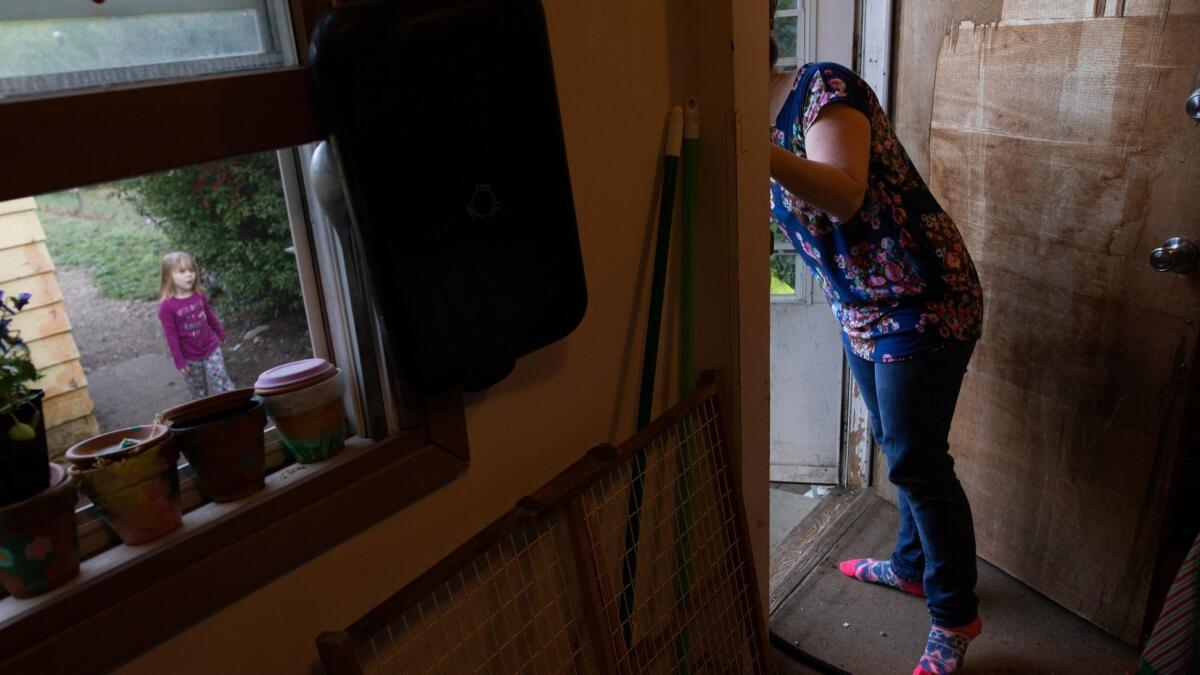
More to Read
Get the L.A. Times Politics newsletter
Deeply reported insights into legislation, politics and policy from Sacramento, Washington and beyond. In your inbox twice per week.
You may occasionally receive promotional content from the Los Angeles Times.
